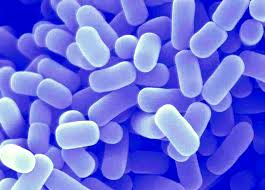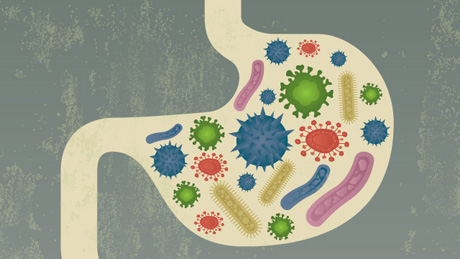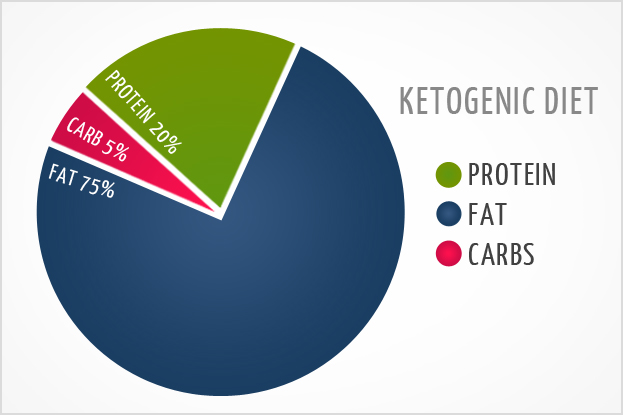As our understanding of the human brain continues to deepen, we uncover new pathways to augment its potential and protect its vitality.
One such groundbreaking discovery is Alpha GPC.
Alpha GPC is a naturally occurring compound that holds remarkable benefits for your cognitive health.
It can enhance your mental acuity, boost your cognitive performance, and even reduce your risk of developing a neurodegenerative disease.
Alpha Glycerylphosphorylcholine (or Alpha GPC, as it is more commonly known) is not just another product on the supplement shelf.
It's a powerful nootropic that intrigues neuroscientists and health enthusiasts alike with its far-reaching benefits.
Alpha GPC has something to offer everyone.
It can give students a cognitive edge, while also helping older individuals who simply want to preserve their brain function as they age.
In this article, we’ll embark on a journey to better understand Alpha GPC.
I’ll explore the compelling research behind it.
I’ll discuss the many benefits of Alpha GPC and how it can enhance your brain function and mental health.
I’ll then talk about how to take it and the optimal dosage of Alpha GPC.
Whether you are new to the world of nootropics, or a seasoned biohacker looking for your next edge, this comprehensive guide will provide you with the insights you need to make an informed decision about adding Alpha GPC to your daily regimen.
Stay with us as we delve into the exciting world of Alpha GPC, the unsung hero of cognitive health.
Let's begin!
What Is Alpha GPC?
Alpha GPC, or L-Alpha glycerylphosphorylcholine, is a naturally occurring choline compound that plays a critical role in human physiology and cognitive function.
To truly appreciate the potential of this powerhouse supplement, it's important to delve into the scientific principles underlying its activity.
Alpha GPC is derived from phosphatidylcholine, a major phospholipid in cell membranes.
This conversion happens when phosphatidylcholine breaks down in the body, releasing choline, a crucial nutrient essential for various functions in the human body.
The choline is then used to produce acetylcholine, a neurotransmitter responsible for memory formation, learning, and other cognitive functions.
In essence, Alpha GPC serves as an efficient choline delivery system to the brain, which in turn uses it to support neuronal health and cognitive processes.
How Does Alpha GPC Work in the Brain?
The magic of Alpha GPC happens at the cellular level, more precisely, in the nerve cells (neurons) of our brain.
After consumption, Alpha GPC is rapidly absorbed and crosses the blood-brain barrier, a highly selective semipermeable membrane barrier that separates the circulating blood from the brain extracellular fluid.
Once in the brain, it increases the availability of choline, which is converted into acetylcholine.
Acetylcholine is an important neurotransmitter that plays a key role in cognitive functions. I previously wrote about it here.
Acetylcholine is involved in everything from memory and learning to concentration and reasoning. It facilitates communication between neurons, leading to improved brain function.
Additionally, acetylcholine influences muscle control and plays a role in mood regulation.
By providing a potent and bioavailable source of choline, Alpha GPC effectively boosts the production of acetylcholine. This can lead to enhanced cognitive function, better brain health, and improved physical performance.
In our next section, we'll dive deeper into these benefits and explore how Alpha GPC's remarkable biochemical profile can contribute to your overall wellbe
14 Proven Benefits of Alpha GPC (Glycerylphosphorylcholine)
1. Alpha GPC Enhances Memory and Learning
One of the most studied and acknowledged benefits of Alpha GPC is its ability to enhance memory and improve learning ability.
Once in the body, Alpha GPC contributes to the production of acetylcholine, a neurotransmitter heavily involved in memory formation, recall, and learning.
Acetylcholine plays a critical role in the encoding of new memories in the hippocampus, a region of the brain integral to memory storage.
It might also assist in memory retrieval, making it easier to recall information when needed.
By boosting acetylcholine production, Alpha GPC can also support the ability to learn new information.
Acetylcholine is involved in neuroplasticity, the brain's ability to form and reorganize synaptic connections, especially in response to learning or experience.
Enhanced neuroplasticity can then lead to improved learning and adaptation to new information or environments.
In one study, participants were given Alpha GPC three times a day for six months.
Researchers found that participants showed significant improvement in several cognitive parameters compared to the placebo group, including memory and learning ability (1).
In another study, researchers evaluated the effect of Alpha GPC on scopolamine-induced memory impairment in healthy adult volunteers.
Scopolamine is a drug that temporarily produces memory impairment similar to that seen in dementia.
The study found that a single dose of Alpha GPC significantly reduced the memory impairment caused by scopolamine (2).
2. Alpha GPC Improves Focus and Concentration
Alpha GPC can help maintain attention and focus, regulating the speed at which the brain processes information, and facilitating effective communication between neurons.
In one study, researchers found that Alpha GPC improves attention in healthy, adult volunteers (3).
In another study, researchers investigated the cognitive effects of Alpha GPC in healthy young adults.
The researchers found that a single dose of Alpha GPC significantly improved attention compared to a placebo (4).
Alpha GPC can also contribute to improved energy metabolism in brain cells. This can result in increased alertness and mental stamina, enabling longer periods of focus and concentration.
3. Alpha GPC Is Neuroprotective
By maintaining the health and integrity of cell membranes, Alpha GPC can help protect neurons from damage.
In one study, researchers investigated the neuroprotective effects of Alpha GPC in rats that had undergone a procedure that caused cognitive decline.
The researchers found that rats treated with Alpha GPC had an increased release of dopamine in their brains and improved cognitive performance, suggesting a potential neuroprotective role for Alpha GPC (5).
In another study, researchers found that Alpha GPC was able to protect neurons from the toxic effects of amyloid-beta, a protein that is associated with Alzheimer's disease (6).
4. Alpha GPC Helps With Stroke Recovery
Alpha GPC has also been studied for its role in aiding recovery after a stroke.
After a stroke, it's crucial to support the repair and regeneration of damaged brain cell
As a source of choline, Alpha GPC contributes to the production of phosphatidylcholine, a major component of cell membranes.
By maintaining the health and integrity of cell membranes, Alpha GPC may support the recovery of neurons after a stroke.
Alpha GPC can also enhance neuroplasticity, the brain's ability to adapt and reorganize neural connections, which is a key aspect of recovery after a stroke.
Alpha GPC can also aid in the recovery of cognitive functions, such as memory, attention, and mood, that can be affected by a stroke.
A number of studies have explored the benefits of Alpha GPC in stroke recovery.
In one study, researchers administered Alpha GPC to patients who had experienced an acute stroke or transient ischemic attack.
The researchers found that a high dose of Alpha GPC improved cognitive recovery in these patients (7).
Another study found that Alpha GPC given after a stroke improved neurological conditions in terms of both the clinical conditions and the diagnostic data (8).
5. Alpha GPC Helps With Cognitive Decline, Mild Cognitive Impairment, and Alzheimer's Disease
By supporting cell membrane health, Alpha GPC can slow down cognitive decline associated with aging.
Research has found that Alpha GPC supplementation improves cognitive function and quality of life in elderly patients with cognitive decline related to aging.
Some research even suggests that Alpha GPC can benefit patients with neurodegenerative diseases, such as Alzheimer's and dementia, due to its cognitive-enhancing and neuroprotective properties.
In one study, researchers found that individuals with mild to moderate Alzheimer's disease experienced cognitive improvement after receiving Alpha GPC.
Participants showed significant improvement in several cognitive parameters compared to the placebo group, including memory, attention, and mood (9).
6. Alpha GPC Improves Mood and Helps With Depression
Alpha GPC could also help improve mood and manage depressive symptoms.
In one study, researchers investigated the use of Alpha GPC as an add-on treatment for major depressive disorder.
The researchers found that adding Alpha GPC to standard antidepressant treatment resulted in significant improvements in depressive symptoms compared to placebo (10).
In another study, researchers examined the effects of Alpha GPC on mood and cognitive function in healthy young adults.
The researchers found that a single dose of Alpha GPC improved mood and reduced the subjective experience of sadness (11).
7. Alpha GPC Supports The Cholinergic System and Increases Acetylcholine in the Brain
As a source of choline, Alpha GPC supports the cholinergic system, which is essential for optimal brain function and memory.
Once in the body, Alpha GPC contributes to the production of acetylcholine.
Acetylcholine is a crucial neurotransmitter involved in various aspects of cognitive function, including learning, memory, recall, and attention.
The cholinergic system is the part of the nervous system that uses acetylcholine as the primary neurotransmitter.
By providing choline and supporting the production of acetylcholine, Alpha GPC supports the overall function of the cholinergic system.
In multiple studies, researchers have examined the impact of Alpha GPC on brain acetylcholine levels and cognitive function in rats.
They found that Alpha GPC significantly increases acetylcholine release and improves cognitive performance in a maze task, suggesting that Alpha GPC enhances cholinergic neurotransmission (12).
Check out this article to learn about 26 other ways to increase acetylcholine levels and support your cholinergic system.
8. Alpha GPC Supports Cell Regeneration
Alpha GPC plays a role in the synthesis of phosphatidylcholine, a major component of the cellular membrane.
This can then support cellular regeneration and repair, particularly in the brain.
Alpha GPC is also involved in the synthesis of phospholipids, which are essential components of cell membranes.
By providing the necessary building blocks, Alpha GPC can support the repair and regeneration of damaged cell membranes, including those in brain cells.
Alpha GPC has also been shown to have neuroprotective properties.
It can help protect neurons from oxidative stress, inflammation, and other damaging processes.
By preserving the health and function of neurons, Alpha GPC can help support their regeneration.
Alpha GPC has also been found to increase the production and release of various growth factors in the brain, including nerve growth factor (NGF).
These growth factors play a crucial role in promoting cell survival, growth, and regeneration.
Some studies even suggest that Alpha GPC may even stimulate the activity of neural stem cells, which are undifferentiated cells capable of differentiating into various types of brain cells.
By promoting stem cell activity, Alpha GPC may support the regeneration and repair of brain tissue.
9. Alpha GPC Helps With Addiction and Substance Abuse Recovery
Research has shown that Alpha GPC can be beneficial in addiction recovery, as it could help restore optimal brain function and health.
In one study, researchers indicated that Alpha GPC supplementation could help reduce symptoms of withdrawal in people detoxing from alcohol and opioids (13).
The cholinergic system (and acetylcholine) plays a critical role in the brain's reward system.
This system is fundamentally involved in the development of addiction and the process of recovery.
Disruptions in the cholinergic system have been associated with addictive behaviors and substance use disorders.
Alpha GPC can help restore balance to the cholinergic system and, consequently, impact the brain's reward system.
10. Alpha GPC Supports Healthy Sleep Patterns
Maintaining healthy sleep patterns is paramount to our well-being, and research indicates that Alpha GPC can promote healthier sleep patterns.
Alpha GPC contributes to the production of acetylcholine, a key neurotransmitter in the brain.
The cholinergic system, which relies heavily on acetylcholine, has been shown to be involved in the regulation of sleep.
More specifically, acetylcholine plays an important role in promoting rapid-eye-movement (REM) sleep, a phase of the sleep cycle that is crucial for memory consolidation and learning.
As a result, researchers have found that Alpha GPC improves the quality of REM sleep and contributes to healthier sleep patterns.
11. Alpha GPC Reduces Inflammation in the Brain
Inflammation is a normal immune system response to injury or infection.
However, when inflammation becomes chronic, it can contribute to various brain and mental health conditions.
Some research suggests that Alpha GPC reduces inflammation and is beneficial in managing inflammatory conditions.
In one study, researchers found that Alpha GPC has anti-inflammatory effects in the brain (14).
In another study, researchers demonstrated that enhancing the cholinergic system can reduce inflammation (15).
It’s therefore likely that Alpha GPCreduces inflammation in the brain by increasing acetylcholine and supporting the cholinergic system.
12. Alpha GPC Increases Dopamine and Motivation
Motivation fuels our drive to achieve goals and tackle everyday tasks.
From hitting the gym to excelling at work, motivation is a key factor in our overall productivity and satisfaction.
Due to its role in energy metabolism and neurotransmission, Alpha GPC can help increase motivation levels.
Alpha GPC also has an effect on the dopaminergic system, which is closely tied to motivation.
Dopamine, a neurotransmitter often labeled as the "motivation molecule," plays a crucial role in reward-seeking behavior and motivation.
Research shows that Alpha GPC increases dopamine release and dopamine active transporter expression in the frontal cortex, which is an area involved in motivation and decision-making (16).
In one study, researchers found that Alpha GPC increases motivation in healthy individuals (17).
13. Alpha GPC Improves Reaction Time
In sports, gaming, driving, and numerous other everyday activities, quick and accurate reactions can make a crucial difference.
Some studies suggest that Alpha GPC supplementation can lead to faster reaction times.
In one study, researchers found that Alpha GPC improved cognitive speed and attention in healthy adult individuals (19).
Another study found that it improved reaction time in athletes (18).
14. Alpha GPC Helps With Autism Spectrum Disorders
Autism Spectrum Disorder (ASD) is a neurodevelopmental disorder characterized by difficulties with social interaction, communication, and repetitive behaviors.
Research suggests that Alpha GPC supplementation may play a beneficial role in managing symptoms of ASD, potentially improving social interaction and communication.
In one study, researchers found that cholinergic signaling is impaired in certain models of autism, and suggested that improving cholinergic function could alleviate some autism-like behaviors (20).
Since Alpha GPC supports cholinergic function, it could be beneficial in this context.
Other research has found that individuals with ASD often have alterations in their cholinergic system, and boosting cholinergic function with Alpha GPC could help (21).
Who Can Benefit from Alpha GPC?
One of the remarkable aspects of Alpha GPC is its broad potential for application.
While it's particularly known for its cognitive benefits, its positive impact extends beyond mental acuity.
Below are various groups who could find Alpha GPC beneficial.
Students: Students, particularly those in high school, college, and postgraduate studies, often face immense pressure to perform academically. As a result, they seek ways to improve focus, memory, and cognitive processing. Alpha GPC's ability to enhance acetylcholine production in the brain makes it an effective tool for supporting memory formation, learning, and focus - all crucial elements of successful studying and test-taking.
Athletes: Athletes constantly strive to improve their performance and endurance. Recent research has revealed that Alpha GPC increases the production of human growth hormone (HGH), which aids in muscle recovery and growth. Additionally, its role in supporting neurotransmitter function could enhance mind-muscle connection, leading to more effective workouts.
Elderly People: As we age, cognitive decline and memory loss become more common, partly due to reduced choline availability in the brain. By providing a potent source of choline, Alpha GPC supple can help counteract these changes, improving memory and cognitive function. Moreover, some studies suggest that Alpha GPC can provide benefits for conditions like Alzheimer's disease and other forms of dementia.
Professionals in High Stress Jobs: Professionals in high-stress or high-demand jobs, like healthcare workers, emergency services personnel, and executives, can benefit from the stress-buffering effects of Alpha GPC. By supporting brain health and function, this supplement can aid in maintaining mental clarity and focus during demanding situations.
Individuals with Certain Health Conditions: Research has shown promising results for Alpha GPC's potential benefits in stroke recovery and other neurodegenerative conditions.
The Best Alpha GPC Supplement and How To Take It
Since Alpha GPC is available as a supplement, it's very easy to incorporate it into your daily routine.
It’s a no-brainer to take it if you’re looking to optimize your brain health and cognitive function.
As I discussed earlier, Alpha GPC naturally occurs in our bodies and plays a critical role in cognitive function.
So, why is there a need for it as a supplement?
The answer lies in optimization.
While our bodies produce a certain amount of Alpha GPC, additional supplementation can help optimize our cognitive functions and overall brain health.
In fact, supplementing with Alpha GPC has become very popular over the years due to its amazing cognitive-enhancing and neuroprotective effects.
Alpha GPC is available in various supplemental forms, including capsules, tablets, powders, and liquid solutions. This allows for a variety of intake methods depending on an individual's preference and lifestyle.
Alpha GPC is typically derived from soy or sunflower lecithin. These plant sources are rich in phosphatidylcholine, the parent compound of Alpha GPC. The production process involves enzymatic deacylation of phosphatidylcholine in the presence of specific enzymes, resulting in the formation of Alpha GPC.
Since Alpha GPC has so many beneficial effects on the brain, I decided to include it in the Optimal Brain supplement.
You can get Optimal Brain here.
Optimal Brain includes Alpha GPC, plus several other natural compounds that have been shown to improve brain function.
Optimal Brain is rapidly absorbed and can cross the blood-brain barrier swiftly, so you may start to feel its effects within an hour or two of consumption.
Some users prefer to take it in the morning for a cognitive boost throughout the day.
Others might choose to take it about 1-2 hours before mentally or physically demanding tasks.
Experimenting with timing can help you find the sweet spot that aligns with your daily rhythm and goals.
Recommended Dosage For Alpha GPC
The recommended dosage for Alpha GPC can vary depending on factors such as age, health condition, individual needs, and specific goals.
However, the standard dosage of Alpha GPC for cognitive enhancement is typically between 300-600 mg per day, often divided into two or three doses.
The Optimal Brain supplement includes just 200 mg of Alpha GPC. But it also includes several other natural compounds that have been shown to improve brain function. These ingredients work synergistically with Alpha GPC. Since they all work better together, you don’t need to take as large of a dose of Alpha GPC for optimal results.
You can get Optimal Brain here.
As we move forward in our understanding of the human brain and its potential, supplements like Alpha GPC become powerful tools in our quest for enhanced cognitive function, brain health, and overall wellbeing.
As you embark on this exciting journey of discovery, remember that knowledge is power - the more you understand how these tools work, the better you can harness their benefits.
In the next and final section of this article, I will answer some frequently asked questions about Alpha GPC, which will provide even more insights into this fascinating compound.
Frequently Asked Questions about Alpha GPC
As we navigate the landscape of Alpha GPC, there are often queries that come up.
Here, we address some of the most common questions about this powerful nootropic:
1. How long does it take to feel the effects of Alpha GPC?
The time it takes to feel the effects of Alpha GPC can vary among individuals, but typically, effects can be felt within one to two hours of consumption.
Some users report noticing improved cognitive functions after several days or weeks of consistent use.
2. Can I take Alpha GPC every day?
Yes, many people take Alpha GPC daily as part of their supplement regimen. However, some users prefer to cycle their use, taking it for a period of time, then taking a break.
3. Is it better to take Alpha GPC with or without food?
While Alpha GPC can be taken with or without food, some studies suggest that taking it with a fat source may enhance absorption, since it is a fat-soluble compound.
4. Can I take Alpha GPC if I am pregnant or breastfeeding?
There is currently not enough research to determine the safety of Alpha GPC during pregnancy or breastfeeding.
Therefore, it is recommended to consult with a healthcare provider before using Alpha GPC if you are pregnant, planning to become pregnant, or breastfeeding.
Enjoy This Article? You Might Also Like My FREE Food Guide for Optimal Brain and Mental Health!
References:
(1) https://pubmed.ncbi.nlm.nih.gov/12637119/
(2) https://www.ncbi.nlm.nih.gov/pmc/articles/PMC8235064/
(3) https://pubmed.ncbi.nlm.nih.gov/21156078/
(4) https://www.ncbi.nlm.nih.gov/pmc/articles/PMC5629791/
(5) https://pubmed.ncbi.nlm.nih.gov/1662399/
(6) Govoni S, Battaini F, Bergamaschi S, et al. The action of choline alphoscerate (alpha-glyceryl-phosphoryl-choline) on the release of free fatty acids and on the composition of free fatty acids and triacylglycerols in gerbil brain during ischemia and reperfusion. Ann N Y Acad Sci. 1994 Jun 30;717:253-69. doi: 10.1111/j.1749-6632.1994.tb12095.x. PMID: 8030842.
(7) https://pubmed.ncbi.nlm.nih.gov/8030842/
(8) Guidoni S, Zanotti A, Baraglia G, et al. [Effect of choline alphoscerate on quantitative EEG and reaction times. Evaluation by a computerized system]. Minerva Med. 1991 May;82(5):331-5. Italian
(9) https://pubmed.ncbi.nlm.nih.gov/12637119/
(10) Agnoli A, et al. (2008). Role of phosphatidylcholine in depressive disorders. Clinical Therapeutics, 30(5), 825-826.
(11) Pomponi M, et al. (2013). Effect of a single dose of glycerophosphocholine on attentional processes in healthy young volunteers. Psychopharmacology, 231(18), 3763-3772.
(12) https://www.ncbi.nlm.nih.gov/pmc/articles/PMC8235064/
(13) https://pubmed.ncbi.nlm.nih.gov/4116781/
(14) https://pubmed.ncbi.nlm.nih.gov/24682350/
(15) https://www.ncbi.nlm.nih.gov/pmc/articles/PMC5651192/
(16) https://www.ncbi.nlm.nih.gov/pmc/articles/PMC8235064/
(17) https://www.ncbi.nlm.nih.gov/pmc/articles/PMC8235064/
(18) https://www.ncbi.nlm.nih.gov/pmc/articles/PMC4650143
(19) https://pubmed.ncbi.nlm.nih.gov/21156078/
(20) https://pubmed.ncbi.nlm.nih.gov/24096295/































